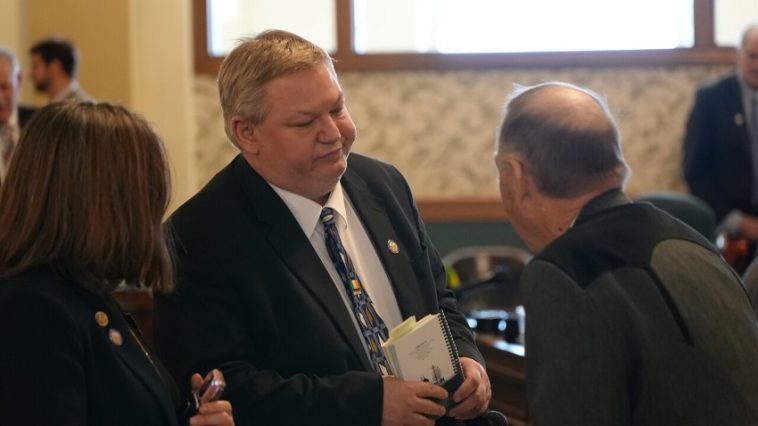Missoula, MT – The Montana Department of Justice, led by Attorney General Austin Knudsen, has announced the initiation of a criminal investigation into former state Senate President Jason Ellsworth, following allegations of misconduct related to a state contract. The investigation was prompted after both the Montana Senate and the Legislative Audit Division (LAD) referred the matter to the Department of Justice.
In a statement, a spokesperson for the Attorney General’s office confirmed that the Division of Criminal Investigation would be tasked with reviewing the potential criminal violations. However, the spokesperson emphasized that the department would not be able to share further details due to the ongoing nature of the investigation.
Ellsworth, a Republican from Hamilton, has been accused of improper handling of a state contract worth $170,000. Senate President Matt Regier, a Republican from Kalispell, had requested the LAD look into the matter after reports surfaced that Ellsworth approved the contract with a former business associate. The Legislative Audit Division’s investigation uncovered what it described as “apparent violations of state law.” However, the division noted that any further action should be handled by law enforcement.
As part of the investigation, questions have arisen regarding whether Ellsworth’s actions also violated the Montana Legislature’s Code of Ethics. Regier had requested clarification from the Department of Justice on whether the Attorney General’s office would investigate these ethical concerns. In response, Knudsen’s office stated that ethical violations fall under the jurisdiction of the Montana Commissioner of Political Practices and are subject to the enforcement of the Legislature itself, not the Department of Justice.
The Senate Ethics Committee had been scheduled to begin hearings on Ellsworth’s actions this month, but the proceedings were delayed after a vote by a group of Democrats and nine Republicans to refer the matter to the Department of Justice for further investigation. Ellsworth, for his part, has expressed confidence in receiving due process from the Attorney General’s office. He also argued that the Ethics Committee hearings should be paused until the criminal investigation is complete, asserting that his version of events is supported by evidence not yet considered in the investigation.
Ellsworth has consistently denied any wrongdoing in connection with the state contract, insisting that he followed all proper procedures. His attorney has also challenged the scope of the investigation, claiming that key documents supporting Ellsworth’s actions were not included in the referral to the Department of Justice.
The unfolding situation has garnered significant attention, with political observers wondering whether the investigation will have long-term implications for Ellsworth’s career and Montana’s political landscape. While the criminal investigation continues, the issue of ethical accountability remains a key point of contention within the state legislature, leaving many questioning the balance between legal oversight and political ethics.
As the Department of Justice moves forward with its inquiry, the political ramifications of these allegations could ripple through the Montana State Senate, particularly as lawmakers prepare for future elections and legislative sessions. The case also highlights the challenges faced by the state’s oversight systems when addressing allegations involving high-ranking officials.



